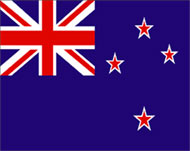
They say that the most commonly-used words -- which also include the numbers two, three and five -- tend to be the oldest and change most slowly over time.
Meanwhile, adjectives like "dirty" and verbs like "squeeze" could disappear over the next eight centuries or so, the scientists say.
"What we've discovered is the frequency with which the words are used in our common everyday speech is a strong predictor of whether or not they will be retained and words we use a lot tend to be highly conserved," Professor Mark Pagel told BBC radio.
Because there are many different ways of saying "dirty" in Indo-European languages -- currently 46 -- it is more likely to die out, the team said, along with, for example, "push", "turn", "wipe" and "stab".
The oldest words in circulation today have been in use for at least 10,000 years, researchers added.
As well as English, other languages in the Indo-European family include Hindi, Gujarati and Bengali.
-----------------------------------------------------------
Meanwhile, adjectives like "dirty" and verbs like "squeeze" could disappear over the next eight centuries or so, the scientists say.
"What we've discovered is the frequency with which the words are used in our common everyday speech is a strong predictor of whether or not they will be retained and words we use a lot tend to be highly conserved," Professor Mark Pagel told BBC radio.
Because there are many different ways of saying "dirty" in Indo-European languages -- currently 46 -- it is more likely to die out, the team said, along with, for example, "push", "turn", "wipe" and "stab".
The oldest words in circulation today have been in use for at least 10,000 years, researchers added.
As well as English, other languages in the Indo-European family include Hindi, Gujarati and Bengali.
-----------------------------------------------------------









 Home
Home Politics
Politics









